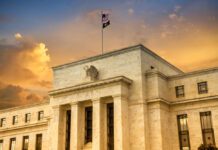
Economists had expected American employers to add about 160,000 jobs in August in what would have been a rebound from a poor report in July.
The rebound didn’t quite come.
Employers added 142,000 jobs in August, according to data released Friday by the Bureau of Labor Statistics. Unemployment dropped slightly to 4.2%, which was in line with expectations. In July, employers added 114,000 jobs — later revised downward to 89,000 jobs — far fewer than economists had forecast, while the unemployment rate jumped to 4.3%.
The July data sparked fears that the U.S. labor market is showing cracks under the highest interest rates in 23 years, causing markets to tumble.
Now all eyes – including those on Wall Street – are watching to see how the jobs report impacts the Federal Reserve’s next rate decision, which is scheduled for Sept. 18. In most publishd reports, economists predict the central bank will use that meeting to make its first rate cut after raising rates 11 times in the last two years. Economists appear to be divided on whether such a cut would be 0.25 percentage points or 0.5 percentage points.
Fed Chair Jerome Powell last month signaled that bank officials are planning for a September cut, saying “the time has come” for the central bank to adjust its monetary policy given signs that inflation continues to cool. He didn’t disclose the size of the expected cut, however.
“Today’s weak jobs report should solidify the case for a rate decrease this month by the Fed and may warrant additional policy easing if the trend continues,” Eric Merlis, managing director and co-head of global markets at Citizens, told CBS News in an email. “The economy continues to add jobs, but it has shifted into a lower gear and policymakers should take that as a call to action.”
The Fed is increasingly focused on risks to the labor market, given the central bank’s confidence that inflation is on a path toward its annual 2% goal, noted Nancy Vanden Houten, lead U.S. economist at Oxford Economics, in a September 5 report, according to a CBS News report.
She added, “Overall, the labor market is still relatively healthy, mainly because layoffs remain low, but appears increasingly vulnerable to a scenario where rising unemployment triggers a cycle of reducing spending and greater job losses.”
Hiring in August was in line with average job growth in recent months, but below the average monthly gain of 202,000 during the prior 12 months, the BLS said on Friday.





